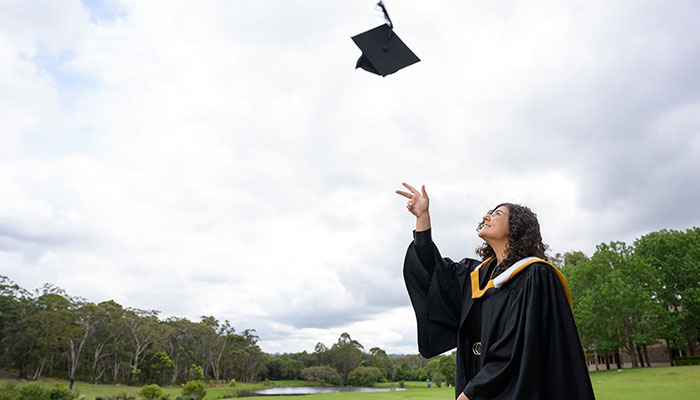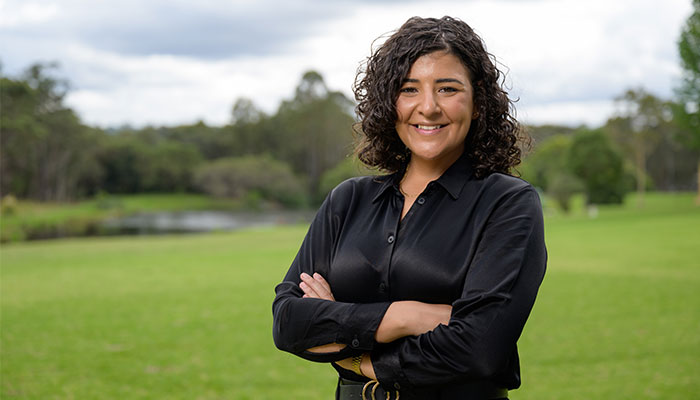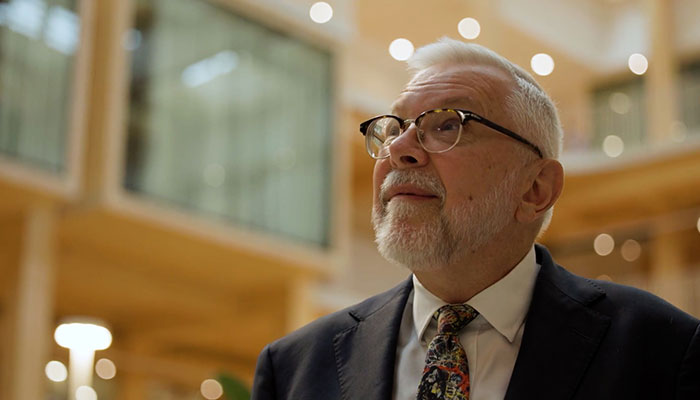Being Lebanese feels political by nature. My dad migrated to Australia from Lebanon in the early 1990s, essentially arriving off the back of serving in the Lebanese Army during the Civil War.

Always learning: Annalise Awkar , pictured, is hoping to expand her expertise on social cohesion at the famed University of Oxford next year. Image: Jesse Taylor
I remember from a young age, my dad and my uncles were constantly at our place discussing politics, debating how to address issues, talking about why things were going wrong. I would be all ears on the sidelines.
I am one of three kids and the only daughter. Which, in a Lebanese family, usually means being domesticated quite early. Mum, who balanced motherhood with her work as a teacher, would often call out for me to help inside with the cooking or cleaning. My favourite task was to make the coffee, so I could take it outside to Dad and keep listening.
As I got older, I was invited in, and my conversations – and arguments – with Dad grew increasingly passionate. Dad and I are both very stubborn, so we were constantly butting heads. We still do. But having my dad contest me along the way has, in an odd way, boosted my self-confidence. If you can defend yourself against your Arab father, you can defend yourself against anything!
We spend a lot of our time arguing about different issues – usually foreign policy or global politics – and it has taught me how to empathise with people who are of a different political standing. That idea is now at the heart of what I do.
I grew up on Darug Land in Western Sydney. My environment felt really safe and supportive. Although my family faced some racism and discrimination, we were surrounded by diverse communities who shared a lot in common with us. I was not exposed to the full extent of hate and violence that comes with social division where I lived. It was something I discovered through television.
I was born in 1999 and grew up in the war-on-terror era. The Cronulla riots and the violent portrayals of the Arab community on our television screens at the time – that was a worrying experience for me, knowing how my community was being misrepresented. It meant learning the importance of social cohesion very early.
 I
I
attended high school at Catherine McAuley Westmead, and it was there that the University of Oxford seed was planted. One of my history teachers mentioned that she had always wanted to study at Oxford, and I immediately Googled pathways to get there.
The Rhodes Scholarship was an initial search result, but once I saw the eligibility criteria, it felt unattainable for me. Then, when I searched “previous Rhodes Scholars”, it felt like an invisible-line moment. I quickly figured that people who get this opportunity aren’t people like me.
My undergraduate studies at Macquarie helped me establish a critical, holistic way of thinking about current challenges and global problems. I chose to pair a Bachelor of Security Studies and a Bachelor of Media and Communications, majoring in Journalism and Non-fiction Writing, because it felt intuitive. I grew up watching the misrepresentation of my community and thought this was what was driving people to hate. I wanted to understand how national security legislation and foreign policy shape social relations in Australia.
I now work at Multicultural NSW, supporting a range of state and national initiatives that counter violent extremism and build community resilience and social cohesion.
The magnitude of being awarded the NSW Rhodes Scholar-Elect 2024 is hard to process, but I am ecstatic and grateful. You don’t see many Lebanese-Australian women from Western Sydney, who are interested in the humanities, making it into these spaces. Things are changing.
Find more information on the Rhodes Scholarship, including details on how to apply, here.



